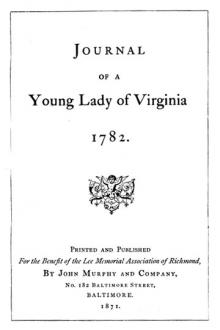Poetry, T. S. Eliot [book recommendations based on other books txt] 📗

- Author: T. S. Eliot
Book online «Poetry, T. S. Eliot [book recommendations based on other books txt] 📗». Author T. S. Eliot
These fragments I have shored against my ruins
Why then Ile fit you. Hieronymo’s mad againe.52
Datta. Dayadhvam. Damyata.
Shantih shantih shantih53
The Hollow MenMistah Kurtz—he dead.
A penny for the Old Guy
IWe are the hollow men
We are the stuffed men
Leaning together
Headpiece filled with straw. Alas!
Our dried voices, when
We whisper together
Are quiet and meaningless
As wind in dry grass
Or rats’ feet over broken glass
In our dry cellar
Shape without form, shade without colour,
Paralysed force, gesture without motion;
Those who have crossed
With direct eyes, to death’s other Kingdom
Remember us—if at all—not as lost
Violent souls, but only
As the hollow men
The stuffed men.
Eyes I dare not meet in dreams
In death’s dream kingdom
These do not appear:
There, the eyes are
Sunlight on a broken column
There, is a tree swinging
And voices are
In the wind’s singing
More distant and more solemn
Than a fading star.
Let me be no nearer
In death’s dream kingdom
Let me also wear
Such deliberate disguises
Rat’s coat, crowskin, crossed staves
In a field
Behaving as the wind behaves
No nearer—
Not that final meeting
In the twilight kingdom
This is the dead land
This is cactus land
Here the stone images
Are raised, here they receive
The supplication of a dead man’s hand
Under the twinkle of a fading star.
Is it like this
In death’s other kingdom
Waking alone
At the hour when we are
Trembling with tenderness
Lips that would kiss
Form prayers to broken stone.
The eyes are not here
There are no eyes here
In this valley of dying stars
In this hollow valley
This broken jaw of our lost kingdoms
In this last of meeting places
We grope together
And avoid speech
Gathered on this beach of the tumid river
Sightless, unless
The eyes reappear
As the perpetual star
Multifoliate rose
Of death’s twilight kingdom
The hope only
Of empty men.
Here we go round the prickly pear
Prickly pear prickly pear
Here we go round the prickly pear
At five o’clock in the morning.
Between the idea
And the reality
Between the motion
And the act
Falls the Shadow
For Thine is the Kingdom
Between the conception
And the creation
Between the emotion
And the response
Falls the Shadow
Life is very long
Between the desire
And the spasm
Between the potency
And the existence
Between the essence
And the descent
Falls the Shadow
For Thine is the Kingdom
For Thine is
Life is
For Thine is the
This is the way the world ends
This is the way the world ends
This is the way the world ends
Not with a bang but a whimper.
“A.B.C.’s” signifes endemic teashops, found in all parts of London. The initials signify “Aerated Bread Company, Limited.” ↩
Not only the title, but the plan and a good deal of the incidental symbolism of the poem were suggested by Miss Jessie L. Weston’s book on the Grail legend: From Ritual to Romance (Macmillan, Cambridge) Indeed, so deeply am I indebted, Miss Weston’s book will elucidate the difficulties of the poem much better than my notes can do; and I recommend it (apart from the great interest of the book itself) to any who think such elucidation of the poem worth the trouble. To another work of anthropology I am indebted in general, one which has influenced our generation profoundly; I mean The Golden Bough; I have used especially the two volumes Adonis, Attis, Osiris. Anyone who is acquainted with these works will immediately recognise in the poem certain references to vegetation ceremonies. ↩
Cf. Ezekiel 2:1. ↩
Cf. Ecclesiastes 12:5. ↩
V. Tristan und Isolde, I, verses 5–8. ↩
V. Tristan und Isolde, III, verse 24. ↩
I am not familiar with the exact constitution of the Tarot pack of cards, from which I have obviously departed to suit my own convenience. The Hanged Man, a member of the traditional pack, fits my purpose in two ways: because he is associated in my mind with the Hanged God of Frazer, and because I associate him with the hooded figure in the passage of the disciples to Emmaus in Part V. The Phoenician Sailor and the Merchant appear later; also the “crowds of people,” and Death by Water is executed in Part IV. The Man with Three Staves (an authentic member of the Tarot pack) I associate, quite arbitrarily, with the Fisher King himself. ↩
Cf. Baudelaire:
“Fourmillante cité, cité; pleine de rêves,
Où le spectre en plein jour raccroche le passant.”
↩
Cf. Inferno, iii. 55–7.
“si lunga tratta
di gente, ch’io non avrei mai creduto
che morte tanta n’avesse disfatta.”
↩
Cf. Inferno, iv. 25–7:
“Quivi, secondo che per ascoltare,
non avea pianto, ma’ che di sospiri,
che l’aura eterna facevan tremare.”
↩
A phenomenon which I have often noticed. ↩
Cf. the Dirge in Webster’s White Devil. ↩
V. Baudelaire, Preface to Fleurs du Mal. ↩
Cf. Antony and Cleopatra, II. ii., l. 190. ↩
Laquearia. V. Aeneid, I. 726:
dependent lychni laquearibus aureis
incensi, et noctem flammis funalia vincunt.
↩
Sylvan scene. V. Milton, Paradise Lost, iv. 140. ↩
V. Ovid, Metamorphoses, vi, Philomela. ↩
Cf. Part III, l. 204. ↩
Cf. Part III, l. 195. ↩
Cf. Webster: “Is the wind in that door still?” ↩
Cf. Part I, l. 37, 48. ↩
Cf. the game of chess in Middleton’s Women Beware Women. ↩
V. Spenser, Prothalamion. ↩
Cf. The Tempest, I. ii. ↩
Cf. Marvell, “To His Coy Mistress.” ↩
Cf.





Comments (0)